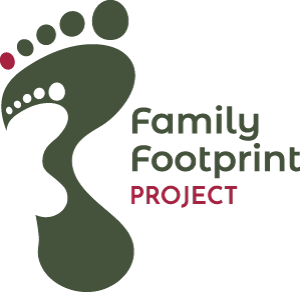I use the phrase ‘conscious consumption’ quite a bit. I think it might need a bit of elaboration, particularly my definition of it. Conscious consumption is often thought of as being ‘ethical consumption’. While that does play a role, in my mind we need to bring more consciousness to our consumption beyond just what we buy. It is also about choosing not to buy.
I never want this blog to be ‘preachy’. I recognise that every family and household’s circumstances are different. All I aim to do is set out my ideas and experiences as an option for others to try or to be inspired by. The strategies that I have found to work to reduce our own carbon footprint, will not suit everyone else. I just hope they can be a jumping off point for others to consider how they can also reduce their ecological footprint. The unifying factor, though, is bringing consciousness to our choices. That is one thing we can all do. We can all be more conscious about our lifestyle choices, whether it is what we buy, what we do, or what we believe to be necessary.
Principles to Guide Conscious Consumption
Managing our carbon footprint starts at the top of the waste reducing principles.

Really, these principles are not just about waste. They are about consumption. Perhaps I should rename them footprint reducing principles. They are a framework for bringing more consciousness (I would say mindfulness but this has become a loaded and misused term) to what we buy and use.
In planetary terms, it is essential that we reduce the amount we consume in general. For sometime now, we’ve been consuming more than the Earth can sustain. These principles can help us bring our own personal consumption within planetary limits.
Refuse
We first think about whether we can actually do without something altogether, whether it is an overseas holiday (oh, they were the – pre-COVID – days!) or a takeaway coffee. There are no right or wrong answers, just conscious ones.
Reduce
For the things we cannot do without, can we reduce how much we need? Can we eat fewer meat meals? How can we use the car less often? Can we do with fewer, better quality clothes?
Reuse (and Repair)
Conscious consumption is also about reconsidering our need for ‘new’ and extending the useful life of things that have already been manufactured. I include repairing things under this principle. Also buying secondhand and repurposing things.
Reconsidering Assumptions
We make assumptions about our needs because they have become habitual. By bringing consciousness to them, we are able to explore these implicit assumptions and possibly change them.
It is hard to do this all at once. The Carter family, authors of A Family Guide to Waste-Free Living (one of my favourite books on this topic) went through the process of changing their habits around waste (and, as I keep stressing, this is principally about consumption) in a matter of weeks and I take my hat off to them. It isn’t the approach that I have been able to take, however. I have just brought the lens into focus on area after area, issue after issue, as I’ve had the time and motivation – or when they have been ready to ‘see’ them. Sometimes I couldn’t see something that was right under my nose due to the unconscious assumption I’d made.
It isn’t always easy to untangle the various issues either, such as whether to buy local food or organic produce from further away. I’ve been faced with conundrums such as whether to buy secondhand synthetic clothes (which shed plastic microfibres) or new clothes made from natural fabrics. There are so many examples and bringing not just environmental sustainability into the equation but also ethical factors, it becomes very complicated.
So, it does take some work and the unfolding of time but I believe it is important, perhaps the most important thing for treading more lightly on our beautiful Earth, to become a conscious consumer and that is why conscious consumption is something I’ll continue to talk about.


